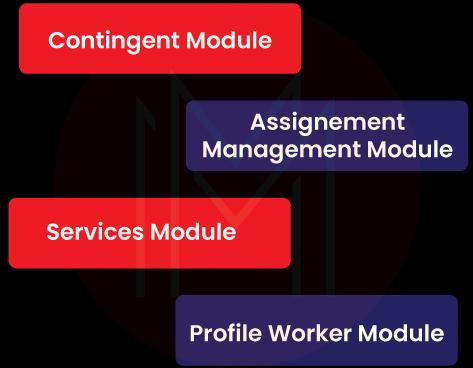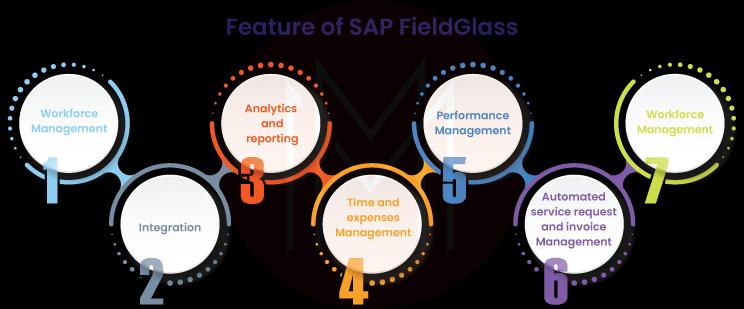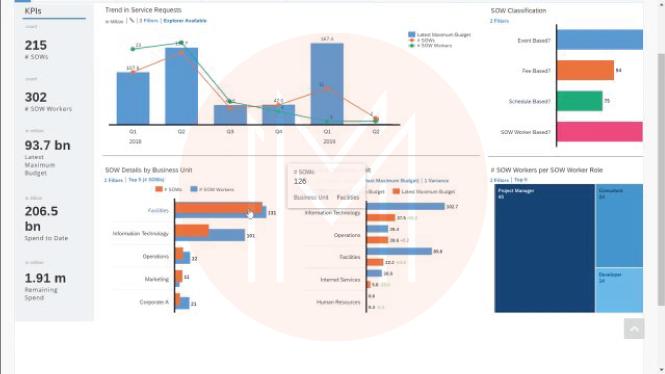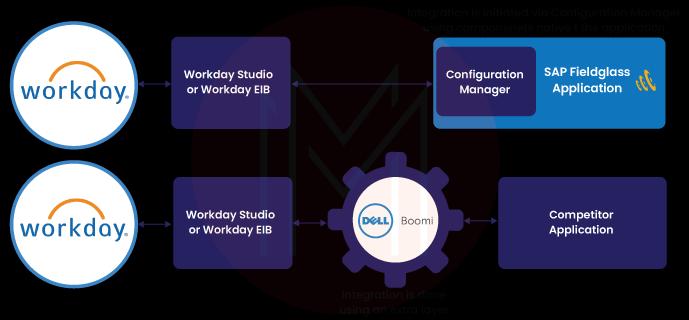- SAP Interview Questions
- SAP MDG Interview Questions
- SAP PS Interview Questions
- SAP C4C Interview Questions
- SAP ISU Interview Questions
- SAP Analytics Cloud Interview Questions
- SAP CO Interview Questions
- SAP CPI Interview Questions
- SAP VIM Interview Questions
- SAP SCM Interview Questions
- SAP IBP Interview Questions
- SAP RAR Interview Questions
- SAP TM Interview Questions
- SAP CPI Architecture
- What is SAP Transportation Management ?
- What is SAP SCM?
- What is SAP PO - SAP Process Orchestration Architecture
- SAP PO Interview Questions
- What is SAP EDI?
- What is SAP Vistex?
- What is SAP Cloud Platform?
- What is SAP MRP - SAP MRP Tutorial
- What is SAP BTP?
- What is SAP C4C?
- What is SAP ISU
- What is SAP Solution Manager?
- SAP Analytics Cloud Tutorial
- SAP HCM Interview Questions
- What is SAP APO?
- SAP CPI Tutorial - A Beginner’s Guide
- What is SAP CAR?
- What is SAP PS - SAP PS Tutorial
- What is SAP IBP?
- What is SAP CPQ
- What Is Sap Netweaver
- What Is SAP BRIM
- What is SAP Master Data Governance (MDG)?
- What is SAP VIM?
- SAP MDG Architecture
- What is SAP MDG
- SAP HCM Tutorial
- SAP MDG Tutorial
- SAP TRM Interview Questions
Nowadays, there is a significant rise in using contingent workers or external workforce in all companies. The external workforce includes contractors, temporary workers, SOW employees, and service providers. So there is an inevitable need for businesses to streamline the operations of the workforce. In this regard, SAP Fieldglass is a cloud-based SaaS platform that manages external workforce throughout their lifecycle. It provides end-to-end visibility across the operations associated with the external workforce and significantly reduces business risks. Further, SAP Fieldglass is a Vendor Management System with which businesses can manage their vendors efficiently. It helps control the vendor pool, their performance, payments, etc.
Want to explore more about what is sap Fieldglass? Keep on reading this blog. You can learn about SAP Fieldglass in the best way through this blog. This blog delves deep into what SAP Fieldglass is, its features and benefits, and how to implement SAP Fieldglass in greater detail.
| What is SAP Fieldglass: Table of Contents |
What is SAP Fieldglass?
SAP Fieldglass is a cloud-based SaaS platform with which you can manage external workforces and vendors effortlessly. SAP Fieldglass is also known as Vendor Management System (VMS). With SAP Fieldglass, you can manage the external workforce from sourcing to payment. In other words, you can track the tasks the external workforce performs, calculate the associated costs, process invoices, billing, and much more. Simply put, it is easy to connect, streamline, manage, and pay external workforce with the help of SAP Fieldglass.
When it comes to integration, SAP Fieldglass integrates with other SAP applications SAP Ariba as well as SAP SuccessFactors effortlessly. The integrations are based on many crucial factors, such as security, strategy, compliance, etc. Apart from that, SAP Fieldglass integrates with SAP HRM, simplifying external workforce management. Similarly, combining SAP Fieldglass with SAP procurement ensures frictionless procurement processes.

In short, SAP Fieldglass integrates with other SAP applications to manage master data, asset management, onboarding and offboarding, and many more. We hope you have gained a clear idea of what SAP Fieldglass is now. Let’s turn toward understanding how SAP Fieldglass works.
| If you want to enrich your career and become a professional in SAP Fieldglass, then enroll in "SAP Fieldglass Training" This course will help you to achieve excellence in this domain. |
How does SAP Fieldglass Work?
Know that SAP Fieldglass automates the entire procurement to payment cycle of the external or contingent workforce.
SAP Fieldglass works based on four modules, as depicted in the below image.

Let’s uncover the modules now.
#1.Contingent Module
This module manages the external workforce effectively. In other words, it automates workforce management processes such as sourcing workers, managing their tasks, and processing payment for their services. This module also improves data security. As a result, business productivity is enhanced to greater heights.
#2.Assignment Management Module
This module is used to handle workers who are assigned multiple tasks. It helps to deploy, control, and pay the workforce efficiently. You can assign tasks to the external workforce using this module, manage service entry sheets, record their services, and more. This module helps increase efficiency, meet compliance, and improve costs.
#3.Services Module
This module manages the Statement of Workforce (SOW) workers and vendors. This module simplifies creating service requisitions, sourcing service providers, processing SOW generation, invoicing, etc.
#4.Profile Worker Module
This module manages workers who are not included in the SOW. It aids in keeping records of the workforce in an organized way. The records will contain the workers' contact details, their services, worker identity details, authorizations offered, hours they worked, and much more.
Key features of SAP Fieldglass
SAP Fieldglass comes with some excellent features out of the box.

Let’s go through the features of SAP Fieldglass now.
#1.Workforce Management
With SAP Fieldglass, you can source, onboard, offboard, manage, and pay the external workforce in a single platform. Mainly, onboarding provides a smooth entry for a new worker into a company. Every worker will be given a start date as well as an end date to begin and complete their tasks in the prescribed period. These details will be clearly recorded in the worker checklists. Checklists play a pivotal role in the process of workers returning the assets of the company while offboarding. Similarly, frictionless and positive offboarding is ensured with the help of SAP Fieldglass. Overall, risks are reduced in workforce management, and productivity is improved significantly.
#2.Vendor Management
With SAP Fieldglass, you can optimize vendor management. You can ensure the quality of service vendors provide as well as compliance with security policies. Thus you can minimize costs and maximize revenue.
#3.Automated service request and Invoice Management
The automation capabilities of SAP Fieldglass simplify making service requests and managing them. So you can track, control, and pay for the service activities of the external workforce through automated processes. Moreover, SAP Fieldglass converts workers’ approved timesheets into invoices automatically. This system avoids multiple times of reconciliations altogether. GST, local tax deductions, and other tax details are added to the invoices automatically. Once invoices are generated, workers can download them anytime.
#4.Performance Management
SAP Fieldglass offers many administrative tools to streamline the operations of vendors, external workforce, and contractors. The tools help to enhance the performance of business operations. The administrative tools are template libraries, pre-defined workflows, and upload tools. The template libraries of pre-defined jobs assist users in avoiding creating their own templates altogether. SAP Fieldglass offers over 150 upload tools with which you can upload massive amounts of data. Moreover, SAP Fieldglass provides pre-defined configuration settings that help to automate the events such as sending notifications, enabling alerts, and so on.
#5.Time and Expense Management
SAP Fieldglass offers many time and expense sheet functions such as time entry, workflows, expense controls, expense entry, and so on. They help to optimize workers’ performance and control expenses. Note that you can tailor the time and expense sheet functions based on your needs. Moreover, SAP Fieldglass provides good visibility across the operations associated with external workforce management. It allows you to see the expenses made by the workforce in a single view. Therefore, you can easily control costs and boost revenue.
#6.Analytics and Reporting
SAP Fieldglass offers a robust Business intelligence tool with which you can transform real-time workforce data into meaningful analytics and insights. Also, the BI tool predicts future trends, which will assist in optimizing workforce management and raising the business value to go beyond limits.

#7.Integration
In SAP Fieldglass, integration with different external applications is simplified with the help of various formats as well as protocols. In other words, these formats allow quick and seamless integrations with external sources. So you can easily integrate SAP Fieldglass with all the cloud-based applications as well as behind-the-firewall systems. Furthermore, dashboards and reports help to measure KPIs of external workforce management and vendor performance. You can also share the analytics and reports with external applications seamlessly.
Benefits of SAP Fieldglass
SAP Fieldglass offers many benefits to users, such as improved feasibility, visibility, and efficiency.
Let’s brief them now.
#1.Improved Visibility
With SAP Fieldglass, you can easily access the details of external workers, from sourcing to payment, at any time. This is because users don’t need to switch between systems using electronic signatures, SSO, and others. The dashboards and reports provided by SAP Fieldglass improve visibility across the external workforce operations, invoicing, expenses, billing, etc. Besides, you can glance at the onboarding and offboarding of workers with SAP Fieldglass.
#2.Reduced Costs
In SAP Fieldglass, data is secured with the help of an information security management system. It minimizes risks and thus reduces costs. Analytics and insights provided by SAP Fieldglass aid in tracking the KPIs of businesses closely. So you can make informed and accurate business decisions, which will help to avoid losses and increase income. SAP Fieldglass support meeting the compliance requirements of security and other policies. It also enhances the service quality and efficiency of external workforce management. Ultimately, costs are reduced, and productivity and revenue are increased to new heights.
#3.Increased Feasibility
SAP Fieldglass supports the mobile platform without any friction. So you can track the managed projects and workforce operations and assign tasks to workers through mobile apps. Also, implementing SAP Fieldglass in any platform is simple and fast. It provides good business value to companies that leverage this software.
#4.Increased Efficiency
Processing invoicing and payments are simplified in SAP Fieldglass with the help of centralized systems. It eliminates repeated verifications on invoices altogether and increases efficiency. SAP Fieldglass helps to innovate and interact with stakeholders effectively. It also integrates with robust platforms such as Oracle, IBM Cognos, SAP S/4 HANA, etc. Hence, it increases efficiency and triggers business growth to hit greater heights.

Related Article:SAP HANA Tutorial
SAP Fieldglass Implementation
Know that there are totally six stages in the SAP Fieldglass implementation. Every stage in SAP Fieldglass comes with a gate. Gates play a significant role in SAP Fieldglass implementation. This is because they help SAP consultants decide whether to move to the next stage from the previous one.
Let's take a look at the stages in this part closely.
Stages of SAP Fieldglass Implementation

#1.Pre-implementation
This initial stage is where you will study clients' systems and technologies. It will allow you to create a holistic project plan after discussing it with various teams of clients. You will also get a clear-cut idea about the client's desired outcomes.
#2.Discovery
This stage includes creating a roadmap for implementing the SAP Fieldglass. This stage opens up opportunities to improvise the project plan and reduce risks in the implementation. The project plan, approach, architecture, and other associated components are thoroughly discussed and finalized in this stage.
#3.Design
In this phase, the holistic design for SAP Fieldglass implementation is crafted, and all other configuration settings are performed. Note that no single input will be encouraged from the clients to add up once the design is frozen.
#4.Testing
This is the critical stage in which you can evaluate the effectiveness of the design by conducting ‘system integration’ testing. This testing helps to ensure all the design modules are working as per specifications. If any bug is flagged, it is debugged to improve the efficiency of the design. Finally, user acceptance testing is done to ensure end-users can work with SAP Fieldglass software comfortably.
#5.Launch
This is the final stage where the SAP Fieldglass is launched in the production environment. It is essential to note that change management must be done in this stage because it will help end-users use the tool confidently. On top of all, the success of SAP Fieldglass implementation depends on the active and intense involvement of SAP consultants, various client teams, and stakeholders.
SAP Fieldglass FAQs
1. What are the uses of SAP Fieldglass?
SAP Fieldglass simplifies vendor management and streamlines external workforce management. It simplifies workforce onboarding as well as offboarding, expense management, etc. Besides, it automates tracking external workforce performance and generating invoices and payments.
2. How can you submit expenses in the SAP Fieldglass?
- First, create an ‘expense sheet’ on the homepage of the worker account.
- Next, enter the right ‘expense codes’ in the expense sheet.
- Enter the essential details, like amount, date, etc., in the expense sheet.
- Attach the receipts and other expense documents with the expense sheet.
- Finally, click the ‘submit’ button to forward the expense sheet for approval.
3. What are the companies widely use SAP Fieldglass?
Morgan Stanley, GXO logistics, Citi banking, and many other companies widely use SAP Fieldglass.
4. How many modules are there in SAP Fieldglass?
SAP module consists of four modules: contingent module, assignment module, services module, and profile worker module.
5. Are the SAP Ariba and Fieldglass the same tools?
No. They are different. On the one hand, SAP Fieldglass deals with external workforce and vendor management. On the other hand, SAP Ariba deals with expenses, procurement, and supply chain management. SAP Ariba performs an extensive coverage of operations when compared to SAP Fieldglass.
6. How can you use timesheets in the SAP Fieldglass?
- First, go to the homepage of SAP Fieldglass software
- Next, click on the link shown as ‘enter hours in time sheet’. So you can enter the time details in the sheet.
- Another way is to click ‘view timesheets’ on the homepage and enter the time details in the timesheets.
- Finally, click the ‘submit’ button to forward the time details for approval.
7. What is the use of connecting SAP Fieldglass with the workday?
This integration improves scalability as well as increases data security.
8. What do you mean by SAP Fieldglass integration?
SAP Fieldglass integrates smoothly with the SAP cloud platform, SAP PI, and others.
Conclusion
Long story short – SAP Fieldglass is a centralized platform that simplifies external workforce management from onboarding to offboarding. It integrates with other SAP applications seamlessly and works as a comprehensive software. Overall, it optimizes external workforce management, reduces risks and costs, and boosts productivity and income to greater scales. Well! We hope you might have charged up with lots of information on what SAP Fieldglass is. If you want to make a solid foundation on SAP Fieldglass, you can check out SAP Fieldglass training and get a certification. It will enrich your skills in SAP Fieldglass and give you mighty wings to fly high in your career.
 On-Job Support Service
On-Job Support Service
Online Work Support for your on-job roles.

Our work-support plans provide precise options as per your project tasks. Whether you are a newbie or an experienced professional seeking assistance in completing project tasks, we are here with the following plans to meet your custom needs:
- Pay Per Hour
- Pay Per Week
- Monthly
| Name | Dates | |
|---|---|---|
| SAP Fieldglass Training | Feb 17 to Mar 04 | View Details |
| SAP Fieldglass Training | Feb 21 to Mar 08 | View Details |
| SAP Fieldglass Training | Feb 24 to Mar 11 | View Details |
| SAP Fieldglass Training | Feb 28 to Mar 15 | View Details |

Madhuri is a Senior Content Creator at MindMajix. She has written about a range of different topics on various technologies, which include, Splunk, Tensorflow, Selenium, and CEH. She spends most of her time researching on technology, and startups. Connect with her via LinkedIn and Twitter .
















